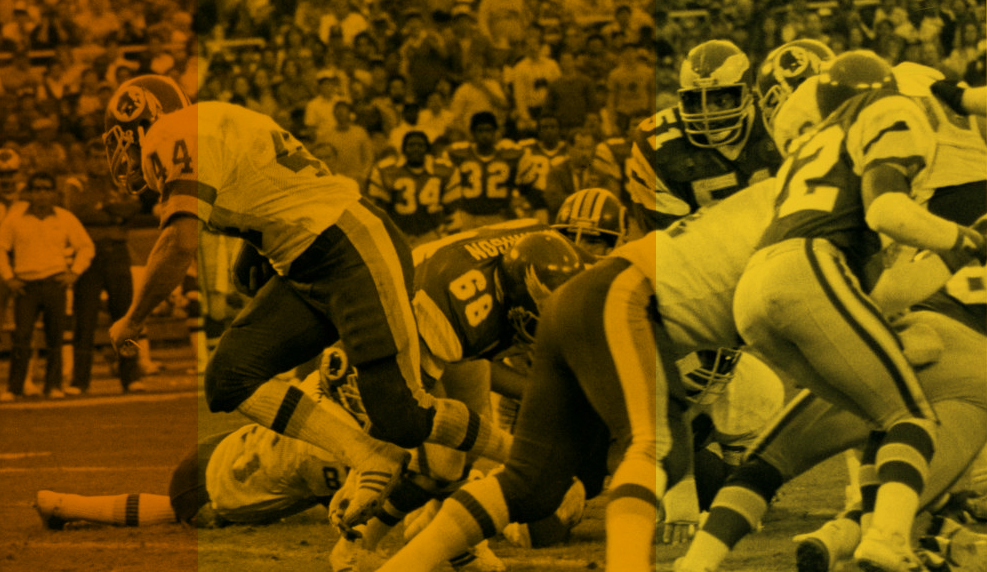Older NFL Players Fighting for Retirement Plan Equity
By Brian Anderson
March 12, 2019
The National Football League has one of the best 401k plans around, but among major professional sports leagues, its pension plan is in last place.
And it’s more than likely stuck in the cellar until at least 2021, as the NFL Players Association (NFLPA) and the league will not negotiate their next collective bargaining until after the 2020 football season.
As a recent AP article points out, a number of former NFL stars are aligning in an effort to eliminate a particularly large discrepancy between what players who retired from the league before 1993 receive in monthly pension payments and what players retiring after 1993 receive.
In 1993, the NFL and its players union signed a collective bargaining agreement (CBA) that ended five years of labor issues.
The agreement included more than $1 billion for a severance package, a 401k retirement plan and a doubling of pensions. But those benefits were not offered retroactively to players who had already retired.
Former NFL players typically have more healthcare needs later in life than most other ex-athletes due to the extreme physical nature of the sport–particularly before concussion protocols and other safety measures went into effect.
FAIR, a 501(c)(3) nonprofit organization which stands for Fairness for Athletes in Retirement, was created by former NFL star John Riggins and his wife Lisa-Marie, supported by a number of former players (including Dick Butkus, Elvin Bethea, Joe DeLamielleure, Ken Houston and more) with the goal of improving the often dire financial plight of players who retired before 1993.
FAIR is behind an awareness campaign to educate the public ahead of the CBA negotiations about pension inequality, the pre-1993 player experience and the misconception that recent NFLPA programs and NFL settlements have appropriately addressed the concerns of these former players.
Per the AP article: According to FAIR, players who played before 1993 get about $3,000 for every year played, while current players get a pension benefit worth about three times that amount.
The old-timers have gotten only one pension increase in the past 38 years through the “legacy benefits” in the last accord in 2011 that supplemented the pensions for old-timers by between $108 and $124 monthly per credited season.
More recent retirees also get medical benefits, life insurance, a 401k, and an annuity. But the old-timers aren’t seeking any of those benefits, focusing solely on getting their pensions on equal footing with the modern players.
To put this in perspective, the FAIR website says a 10-year MLB veteran who retired after 1980, will receive a pension of approximately $200,000 a year at age 62. A 10-year NBA veteran who retired after 1965, will receive a pension of approximately $215,000 a year at age 62. Due to the NFL’s systemic injury rate, the average retirement age for an NFL player is 55.
A 10-year NFL veteran who retired prior to 1993, receives approximately $43,560, a year, pre-tax, at age 55.
“We are calling for the NFLPA and the NFL to do the right thing and work with pre-93 players to find a solution that provides pension equity for the men who made the NFL the most successful sports league in the world,” FAIR concludes.
FAIR is not interested in championing a fight for the benefits beyond pension plan improvements.
“Everything is off the table except the pensions,” Hall of Fame former Los Angeles Rams guard Tom Mack said in the AP article. “There are so many other things that the younger guys have, but we’re just saying we need the pensions so guys can make the decisions they can for themselves.”
It is estimated there are about 3,800 players who retired before 1993 currently receiving pensions. FAIR estimates it would cost each team between $5 and $6 million a year, as well as a similar amount from the current players through a reduced salary cap of less than 3%, to achieve equity with current players.
Riggins, in a March 1 interview with KRON TV in San Francisco, said he doesn’t think the NFLPA has a fiduciary obligation to make changes, but “it’s really more of a moral issue.”
“I don’t want to say we made the game–we didn’t–but we contributed mightily to it, and after our era of players passed through, the value of the league, the value of the franchises skyrocketed, and I think that we have a little bit of equity in that, and that’s basically what we’re asking for,” Riggins said.


